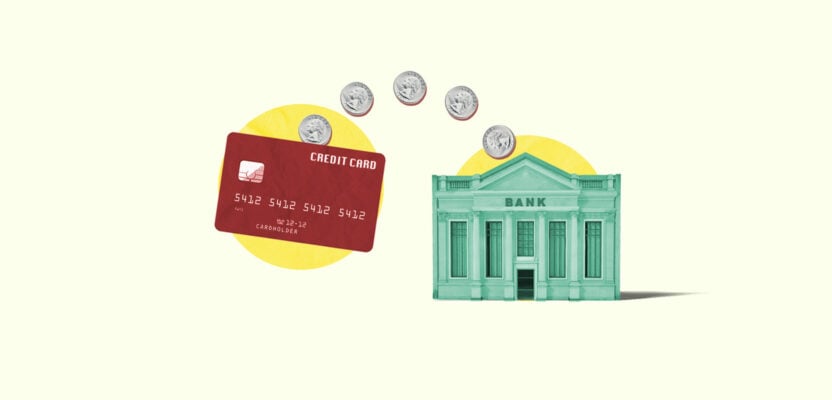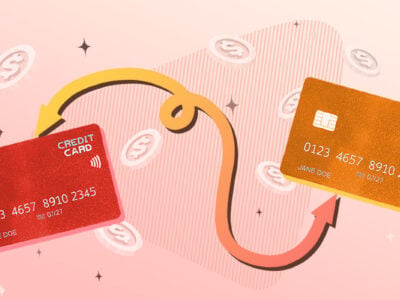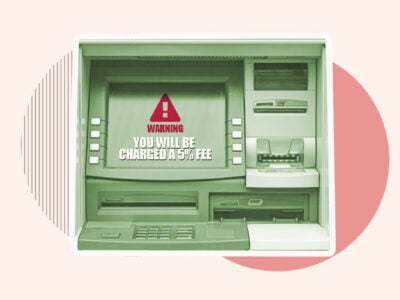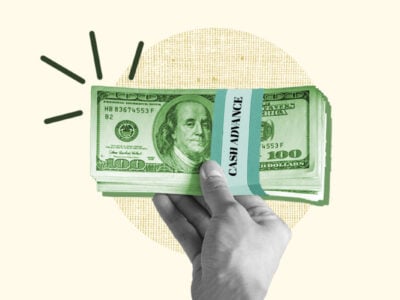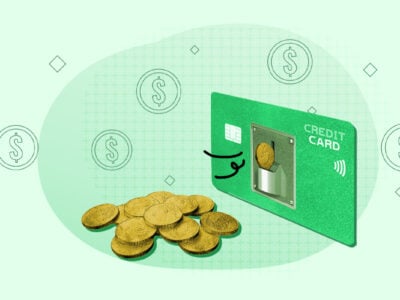If you need money in your bank account—whether it’s because you’ve got bills to pay, you owe a debt to a friend, or something else entirely—it may be possible to transfer the money from your credit card.
However, just because you can do this doesn’t necessarily mean that you should. Credit card issuers impose restrictions on certain transactions, particularly ones that convert credit card funds into cash.
Read on to learn how to deposit money from your credit card into your bank account and what the downsides are.
Table of Contents
Can you transfer money from a credit card to a bank account?
Yes, it’s often possible to transfer credit card funds to a checking or savings account. It depends on your credit card—many cards feature several different methods that allow you to convert credit card funds into cash or a bank deposit.
To find out whether yours is eligible, you’ll need to review your credit card’s terms and conditions or reach out to your card issuer’s customer service team.
How to transfer money to a bank account from your credit card
If you’re strapped for cash and need funds in your bank account ASAP, then you have three options for sending money from a credit card.
1. Get a cash advance
The quickest, easiest, and simplest way to get credit card funds into your bank account is to get a credit card cash advance, which is a type of transaction that lets you borrow money with your card instead of directly making a purchase.
Getting a cash advance is simple: just go to an ATM and use your card to withdraw funds the same way you would with a debit card. Then you can deposit the funds directly into your checking or savings account.
You can also have a teller at your bank withdraw and deposit the money for you at the same time.
Beware that your credit card company may charge you a cash advance fee (often up to 3%–5% of the transaction amount), and you may struggle to get the funds you need if you have a cash advance limit that’s much lower than your regular credit limit.
2. Send a balance transfer check
If you have a credit card that allows balance transfers, then you may be able to get your credit card issuer to write you a balance transfer check and then deposit that check into a bank account.
Not all credit cards will allow you to perform a balance transfer into a checking account, but some do. For example, Chase’s website suggests they may allow you to perform a balance transfer into an eligible checking account. 1
However, as with a cash advance, you may need to pay a balance transfer fee, and you may have a separate balance transfer limit.
3. Use a money transfer service
Some money transfer services, such as PayPal, accept credit cards as a payment method. Just use the service to send money to yourself (i.e., your own bank account).
You may need to set up an account with the transfer service and load money into it from your credit card rather than just sending it directly.
Money transfer companies that take credit cards
Here are just a few companies that will allow you to use your credit card to transfer money into a bank account:
Before performing the transfer, take note of any transaction fees or service charges you’ll need to pay. These extra costs can sometimes be pretty steep.
You can also explore other money transfer services, although you should bear in mind that not all will allow you to send money from your credit card. For example, Google Pay explicitly forbids using a credit card to send, receive, or transfer money. 2
Should you transfer credit card funds to a bank account?
Simply put, no. Transferring money from your credit card to a bank account comes with several serious downsides.
It’s a bad idea unless you’re completely out of options or you have an excellent credit card that won’t penalize you for cash advances.
Disadvantages of transferring money from your credit card to the bank
Sending credit card funds to a bank account comes with the following downsides:
- Added fees: All of the methods described above usually come with added fees. That’s because credit cards are designed for purchases, not as tools to get quick cash, and using them that way can be very expensive. In most cases, it’s just not worth the cost.
- Higher interest charges: In addition to cash advance and balance transfer fees, many credit card issuers charge a higher APR for these transactions. These extra charges can burn a pretty big hole in your wallet.
- Growing debt: Sending money from a credit card to a debit card will increase your credit card balance and the amount of interest you’ll need to pay. If interest begins accumulating immediately, it’ll be much harder to get out of credit card debt.
- Drop in your credit score: Cash advances can hurt your credit score by increasing the size of your debts and your credit utilization rate (how much of your available credit you’re using). This will make it tougher to get access to credit in the future, and can even make it hard to pass a background check for a job or an apartment.
- No credit card rewards: Many credit cards exclude cash advances or “cash-equivalent transactions” from their rewards schemes. This means you won’t be earning rewards points from your bank transfer, and you’ll have fewer funds available to accumulate rewards.
Fortunately, even though using your credit card is a bad idea, there are other ways to add fresh funds to your bank account when you’re in a pinch.
Consider alternatives like taking out a personal loan (if your credit score leaves a lot to be desired, you can still explore bad-credit personal loans), getting a short-term secured loan, or asking for an advance on your paycheck.
